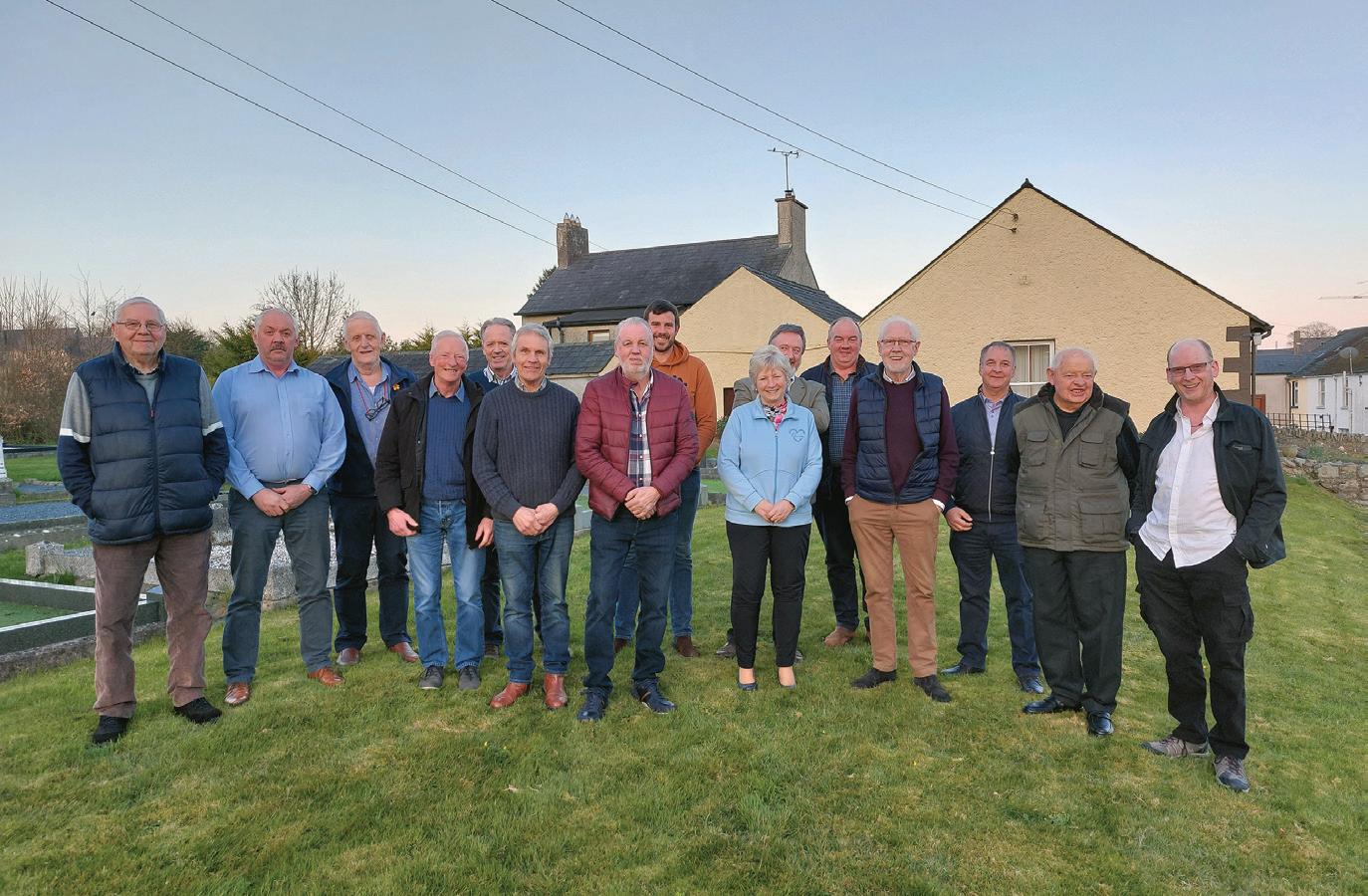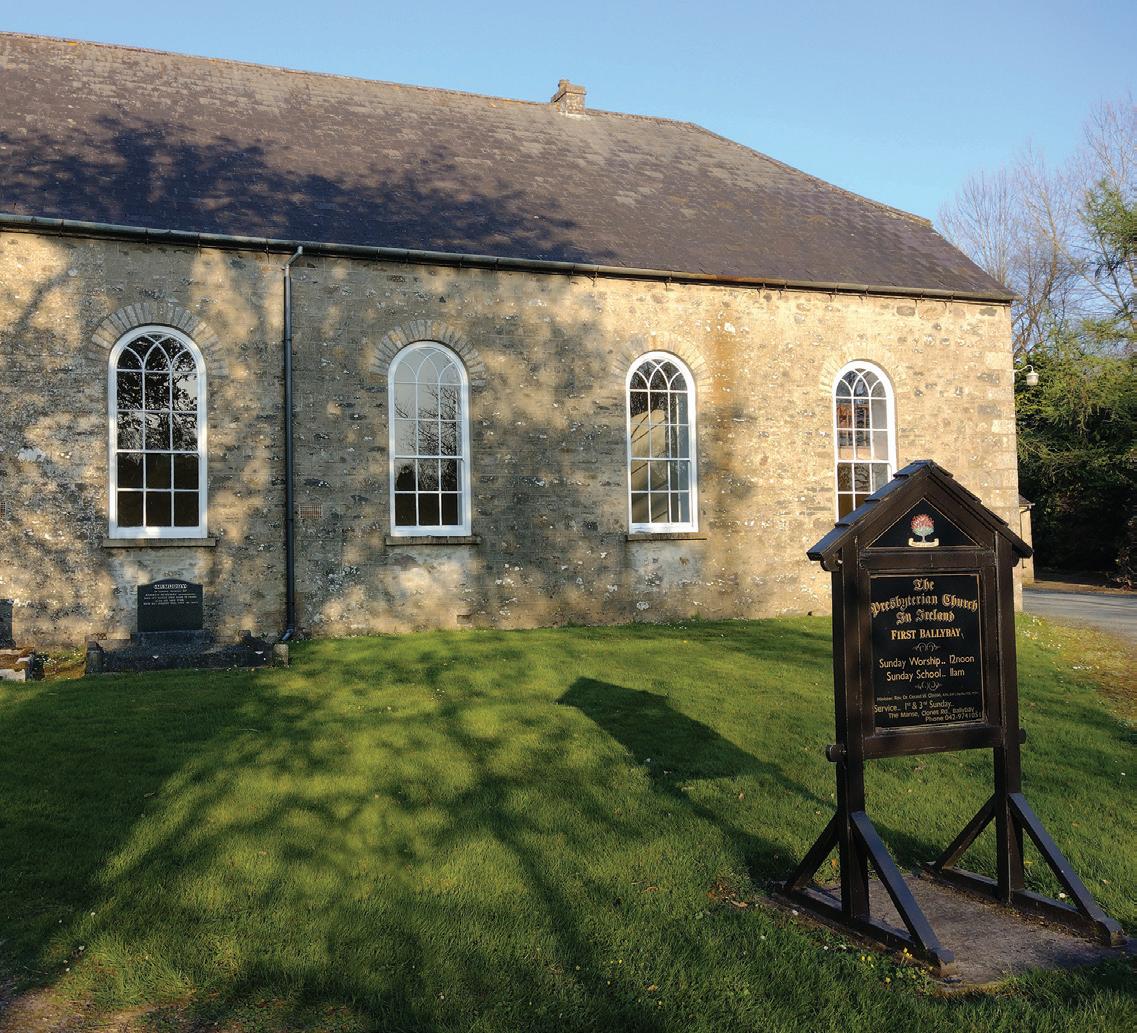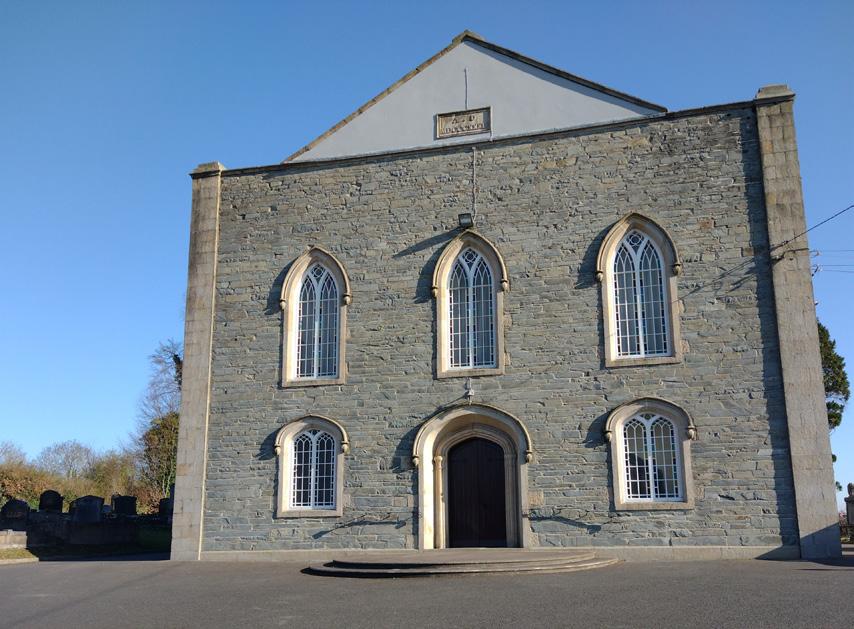
6 minute read
20 years of reconfigured ministry in Ballybay
In 2005, there was a reconfiguration of the churches in the Ballybay area of Monaghan. Twenty years on, David Allen talks to the elders involved in the process about their experiences of it.
Solomon, when he was writing the book of Ecclesiastes, said “…there is nothing new under the sun” (Ecclesiastes 1:9).
As in all of God’s Word, it’s true, even when it comes to reconfiguring ministry and mission in the Presbyterian Church in Ireland.
One example of this happened in 2005 with the formation of the Ballybay Group, when the four congregations of First and Second Ballybay, Drumkeen and Rockcorry were brought into a linkage.
Before then, they were in two groups of two – First Ballybay and Drumkeen, and Second Ballybay and Rockcorry, with two ministers, and a weekly service in all the meeting houses. Now, they’re still four distinct congregations, with four kirk sessions and committees, and four meeting houses. But there’s only one minister, Rev Gerry Clinton, and there are only two services each Sunday, with First and Second Ballybay joining together every week in alternate buildings; and Drumkeen and Rockcorry doing the same. A few times each year, all four congregations join together for worship. The kirk sessions almost always meet together, and the youth work etc is shared.
At the start of April, I spent a very pleasant evening with the elders who were serving in 2005, along with Rev Gerry Clinton and Rev David Nesbitt and his wife Elsie. David had been minister of First Ballybay and Drumkeen at the time, having been installed in 1968. In 2005, Second Ballybay and Rockcorry then became vacant.
The reason for the visit was to hear their story – how they felt before, during and after reconfiguration –their concerns, their encouragements, and their reflections after 20 years of reconfigured ministry.
There are more leaders… members have greater opportunities to use gifts.

The first thing the elders were keen to share was that they all, without exception, believe that the reconfiguration has been a good thing – one that God has blessed – bringing encouragement, fellowship and support to them in their congregations.
Each worship service has a much greater attendance, the praise inspires more involvement and there is greater encouragement for families of all generations to attend. There are more leaders and Sunday school teachers in the combined congregations and members have greater opportunities to use gifts. Fellowship has deepened, especially among the elders, as they meet together to give spiritual leadership to the congregations. There is also more finance available, as only two buildings each week are being heated, only one minister is being paid, and only one manse is being lived in.
All of them firmly believe it was the right thing to do, and are thankful to God for the way reconfiguration has benefited their congregations.

However, they were honest that back in 2005, they had concerns about what would happen, and a few of them weren’t sure if it was the right way forward. The main concern they spoke about was what would happen to the meeting houses. Presbyterianism has a long history in the area, with families belonging to the congregations for many generations and with family members buried in the churches’ graveyards. The elders were keen to retain the meeting houses, and worship in all of them. It’s worth mentioning that there are other former meeting houses in the area, where congregations and worship haven’t been retained, but these four congregations were aware of their history, their identity, their presence and witness in the community.
One other concern was that people would only attend when the service was in ‘their’ church, and wouldn’t go on the alternate weeks – this happened with just a few families. There was open and honest discussion in 2005, they said, but the vast majority of them were in favour of the change, and agreed to present it positively to the congregations. Those who were initially reluctant, accepted the wishes of the clear majority, and when the decision was taken, all of them moved forward together.
...the reconfiguration has been a good thing – one that God has blessed...
So, why did the elders endorse the reconfiguration?
Firstly, they realised something had to change, that things couldn’t go on as they had. Put simply, they knew there was no way that two ministers could be in Ballybay any longer. There weren’t enough people, there wasn’t enough finance, and they couldn’t expect PCI to provide the ministers and money to allow there to be two ministers in the town. While that was a painful realisation, it was one they all recognised.
Secondly, the elders all knew each other because the congregations had been working together for years. When David and Elsie came to Ballybay in the 1960s, the youth work among the congregations was united, and led by them. So, many of the 2005 elders had been sharing church activities for nearly 40 years. They knew, respected and even liked each other! So, the move to link the congregations was natural, an extension of their existing friendship and fellowship.
Thirdly, forming a group of four congregations allowed them to retain and use all their meeting houses. The identity, presence and witness of all four congregations was maintained in the local area, both rurally, and in Ballybay town.
Finally, all the elders emphasised that they were led by a respected and trusted minister. David, with Elsie, had been ministering there for almost 40 years. He knew, and was known, by everyone and was trusted by all. In 2005, he was approaching retirement. People recognised that the easiest thing for him would be to leave things as they were, avoiding change so close to retirement. By encouraging such a change, everyone knew he had no self-interest, and was leading the congregations that way purely because he believed it would be for their longterm benefit and blessing.
The last question I asked the elders was, “What do you think will be happening here in another 20 years?”
The quick-witted reply was: “The group will be doing so well that there’ll be someone else from Belfast talking to us to see what they can learn.” Amen to that!
(Many thanks to the elders, David and Elsie Nesbitt, and Gerry Clinton for their openness and hospitality.)
Dr David Allen is Deputy Clerk of the General Assembly.


